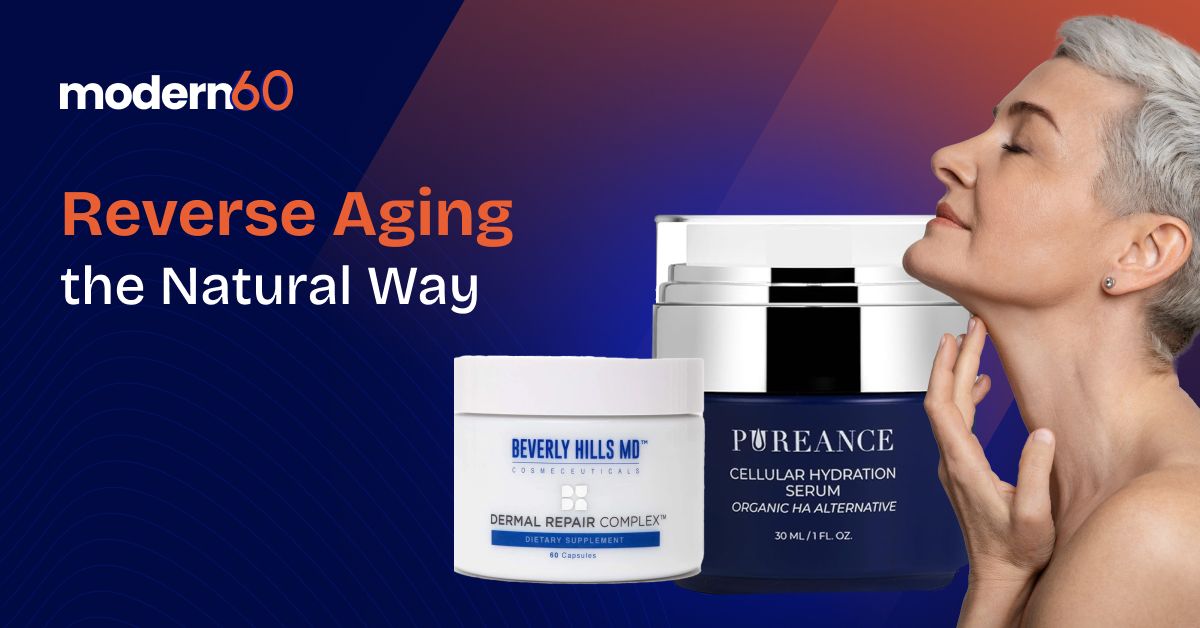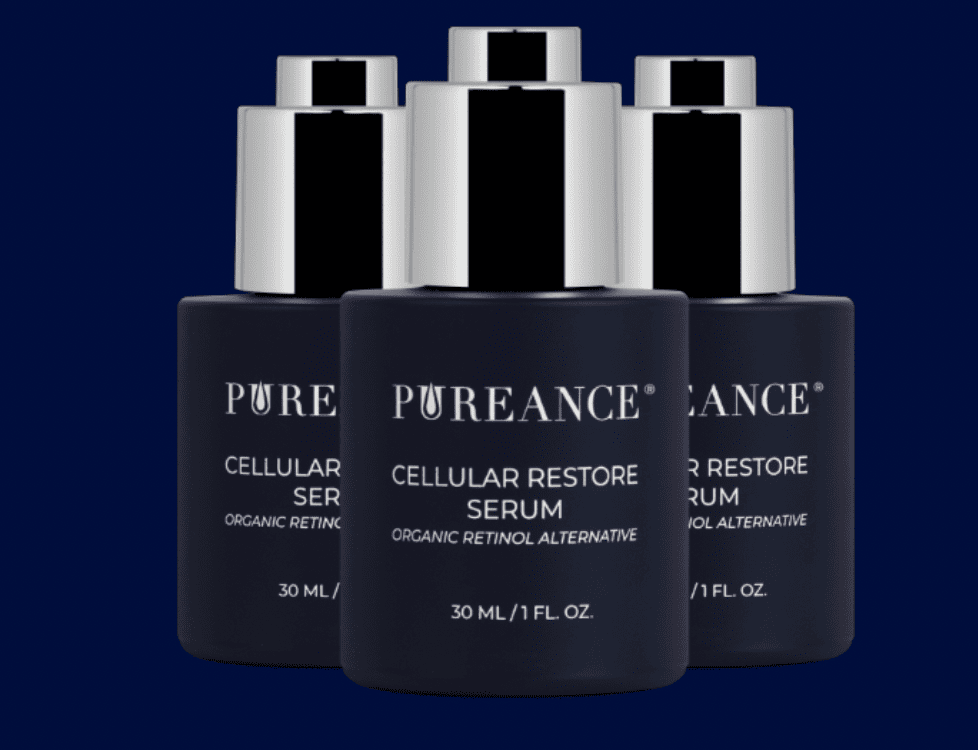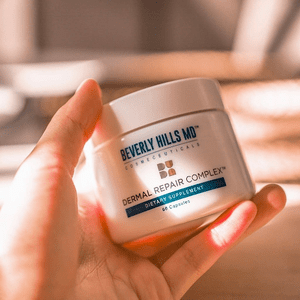Could It Be The #1 Trick For Saggy Skin?
Try Adding This To Your Daily Beauty Procedures and See How It Works
How to Slow and Reverse Aging Naturally?

Last Updated on,
May 16th, 2025

Aging is a natural process that brings with it experience and wisdom, making life more meaningful. But even so, it is quite usual for people to want to slow down the clock and delay the effects of old age for as long as possible. Several factors can either accelerate or slow down aging, from the foods you put on your plate to the amount of exercise you get. So you must make the right choices every day.
Can You Reverse Aging Naturally?
Everyone ages at a different pace depending on their genetics, and that’s not something you can stop or reverse completely. Having said that, you can slow down the effects by making a few healthy, practical lifestyle changes that will also help you age more gracefully.
How Can You Slow Down the Aging Process?
Your chronological age is the number of years you have lived, while your biological age indicates how well your body and its organs are working. The latter is calculated by a doctor based on your actual age and nine markers in your blood test. If the test reveals problems with your internal organs and other health risks, it could mean your biological age is higher than your chronological age. In other words, your body is aging faster.
While you cannot change your chronological age, you can lower your biological age to a certain extent with lifestyle changes.
Exercise Everyday for 20 Minutes
Exercising consistently every day for at least 20 minutes can help prevent diseases that speed up aging. Walking, cycling, jogging, and swimming are a few physical activities to consider. If you miss out on your daily exercise, some yardwork or walking your dog can also do the trick.
Give Your Brain a Workout Too
One of the biggest changes you will notice with age is how your brain starts to slow down. One way to manage this problem is to perform mental training exercises. Solving puzzles, playing video games, learning a new language, and creating art can give your brain a good workout and help slow down aging.
Get Enough Sleep
Sleeping well for at least six hours every night is more than enough to improve your overall health and help slow down the effects of aging.
Connect With Your Community
Meeting your friends and family and being socially active can lower the risk of several health problems and make your immune system stronger. If it is not possible to connect with others physically, you can use social media or join online clubs and communities that share similar interests and have members who are in similar life stages.
Make Healthy Food Choices
What you eat not only affects how you feel and function but also how you age. Whole foods and plant-based meals are recommended for healthy aging and overall well-being. At the same time, you must completely eliminate or cut back on frozen dinners, packaged snacks, canned goods, sugary drinks, and other processed foods.
Protect Your Skin
Your skin is where the first signs of aging start to appear. So if you are trying to slow down aging, make sure to start with taking care of your skin. A broad sunscreen that has a blend of iron, zinc, or titanium oxides will protect the skin from the sun’s UV rays as well as the blue light emitted from smartphone and computer screens. In addition to sunscreen, you can use other skincare products that contain antioxidants and anti-inflammatory ingredients to protect and rejuvenate your skin. For example, serums like Pureance Cellular Serum contain natural skin rejuvenators that work like antioxidants and help to get rid of pigmentation, giving a healthier and youthful-looking skin. You can also use turmeric-ginger-infused cleansing balms from True Botanicals to protect your skin from pollutants.
Can Supplements Help You Reverse Aging Naturally?
One of the most effective ways to slow down the aging process is to focus on nutrition. But sometimes, the food you eat may not have all the nutrients necessary to tackle aging. If that’s the case, you can consult a doctor to help you supplement your meals with additional vitamins and minerals.
Beverly Hills MD Dermal Repair Complex
This dietary supplement has essential nutrients like hyaluronic acid, B vitamins, and hydrolyzed collagen. All of these ingredients help fight the common signs of aging. They also nourish the body from within by improving hydration, reducing wrinkles, and enhancing the tone and complexion of your skin.
Thorne Curcumin Phytosome Capsules
Curcumin is the main component of this supplement. It is known to activate proteins in the body and protect against cellular damage.
MindBodyGreen Beauty & Gut Collagen+
Available in powdered form, this supplement contains collagen along with other ingredients like hyaluronic acid, vitamins C and E, biotin, and L-glutamine. These ingredients can help get rid of visible signs of aging.
Nutricost Vitamin E Softgels
Oxidative stress and free radicals often cause visible signs of aging. When you want to manage these problems, you can consider adding vitamin E to your skin care routine after consulting with a licensed doctor.
Read more: Anti-aging Skin Care Routine
The Republic of Tea Decaf People’s Green Tea
These green tea bags have a type of polyphenol called EGCG. Polyphenols are known to support healthy aging.
Aging is a natural process. While it cannot be completely reversed, it can be slowed down by following a healthy lifestyle, which includes sleeping well, exercising, and eating nutrient-dense foods.
FAQs
Several factors, from sun exposure to unhealthy food choices, chronic stress, and sleep deprivation, together speed up the aging process.
It is not possible to completely stop aging. But you can definitely slow down the effects with healthy lifestyle changes and a good skincare routine.
Foods rich in antioxidants, collagen, and vitamins A, B, C, and E can help. You can get these nutrients from bone broth, whole foods, fresh fruits, and vegetables.
While it is not possible to reverse age or age backwards, you can slow down the signs of aging. From exercising to eating healthy and lowering stress, there are several ways to achieve this goal.
Getting enough sleep helps the body as well as the brain to repair and rejuvenate. This increases collagen production and lowers stress hormones, which slows down aging over time.

- Zuri Hawkins-Jarrett graduated with her doctorate in pharmacy from The University of Georgia College of Pharmacy. She completed her residency training with Piedmont Columbus Regional in ambulatory care.
- Zuri also has a Master of Public Health degree from Emory University with a focus on Prevention Science. She has a passion for pharmacy and public health to help those in her community diagnosed with chronic conditions.




There are no comments yet